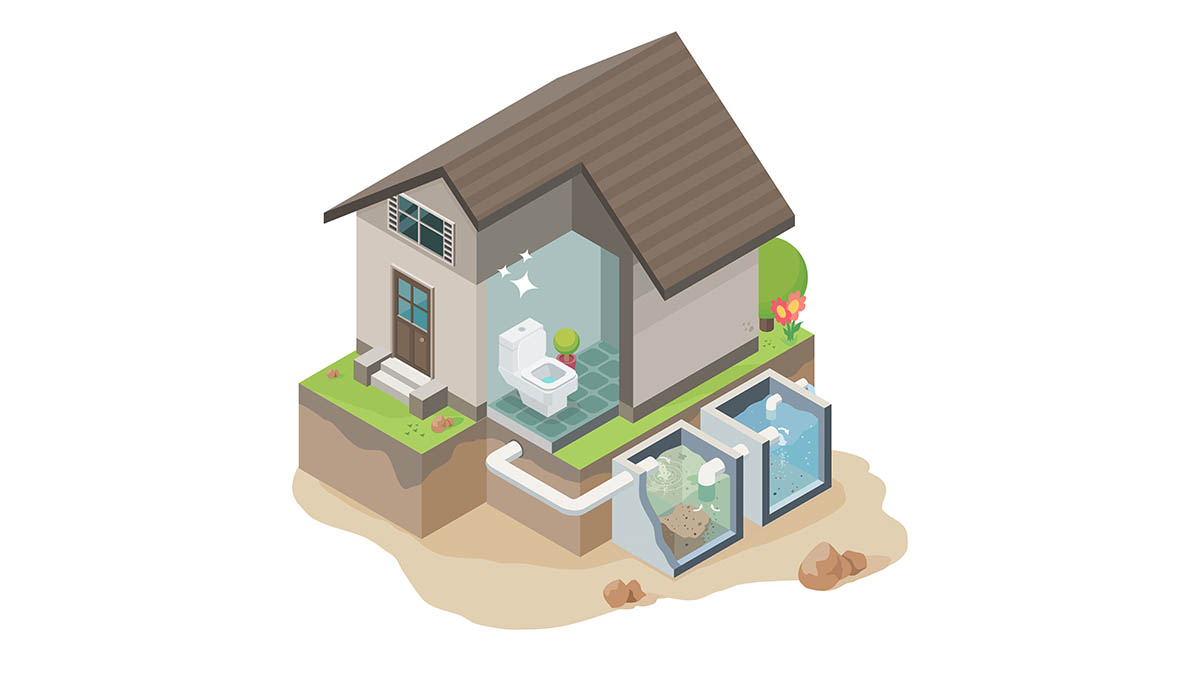Tips for Maintaining a Healthy Septic System
Hello there, fellow homeowners! Today, we're diving deep into the world of septic systems. Yes, that's right – those unsung heroes lurking beneath your property, diligently handling all the wastewater from your home. Just like Coach Ted always says, "You can't win 'em all if you don't take care of your team," and your septic system is a crucial player on your homeownership squad. So, let's roll up our sleeves and learn how to care for your septic system like a pro, all while being kind to Mother Earth.
Unveiling the Mysteries of Your Septic System
Before we jump into maintenance tips, let's unravel the mystery surrounding your septic system. It's not just a hidden underground world; it's a sophisticated system that manages the flow of wastewater from your household.
Understanding the Flow
Imagine this: Water gushes from your faucets, showers, and toilets into the septic tank. The heavy solids gracefully sink to the tank's bottom, forming a sludgy layer. Meanwhile, the liquid portion, known as effluent, embarks on a scenic journey to the drain field. Here, Mother Nature lends her magic touch, purifying the effluent as it percolates through the soil.
The Heroic Septic Tank
Your septic tank is the real hero of this story – the MVP of your septic system. Think of it as the bouncer at an exclusive nightclub, meticulously filtering out the unwanted riff-raff. But here's the thing, it needs some love too. Regular pumping is its way of saying, "Keep the good times rolling!"
The Power of Regular Pumping
Frequent septic tank pumping isn't just a good habit; it's akin to stashing money in your savings account for a rainy day. However, timing is crucial.
Pumping Timeline
As a general rule of thumb, aim to pump your septic tank every 3 to 5 years. But remember, this timeline can shift based on factors like your family size, water usage, and the age and type of your system.
Signs of a Full Tank
Now, let's talk about some telltale signs that your septic tank is ready for a little TLC. Slow drains, mysterious odors wafting around, and an oddly lush lawn near the tank – these are like flashing warning signs on the highway of home maintenance.
The Cost of Pumping
The cost of septic tank pumping isn't one-size-fits-all; it's more like ordering at a fancy restaurant – it depends on what you choose and where you're located. For specific pricing details, consider reaching out to a trusted service provider like Bright Side Plumbing, who might even offer you a free estimate.
Nurturing Your Septic System
Caring for your septic system involves more than just pumping; it's a bit like tending to a garden. Regular inspections, mindful water use, and responsible waste disposal are all part of the gig.
Inspect to Protect
Think of inspections as doctor check-ups for your septic system. Catching issues early can save you from a major headache down the road.
Handle Water Wisely
Using water wisely can alleviate some of the strain on your septic system. Repair leaks promptly, and don't let your taps run endlessly as if they were in a marathon.
The Art of Waste Disposal
Remember, your septic system isn't a magician; it can't make everything disappear. Only waste and toilet paper belong in your toilet; everything else should go in the trash.
When to Call in the Pros
When things get a bit tricky, it's time to call in the pros. Seek out a provider that offers a buffet of services – maintenance, inspections, and repairs. Companies like Bright Side Plumbing are here to lend a helping hand when your septic system needs it the most.
Ensuring Longevity Through Preventive Measures
If you want your septic system to stand the test of time, you'll need to manage water use, avoid sending nasty stuff down the drains, redirect other water sources, and keep those drains squeaky clean.
Fostering Healthy Bacterial Allies
Healthy bacteria are the secret sauce for your septic system's success. Use septic-safe products, skip the antibacterial stuff, and maybe even consider giving those bacteria a little boost every now and then.
Deciphering the Drain Field
The drain field is like the grand finale of a fireworks show. After solids perform their disappearing act in the septic tank, the liquid effluent heads to the drain field for the final cleanup.
Pumping and the Environment
Remember, pumping your septic tank isn't just about you; it's also about our planet. Sticking to EPA guidelines means you're not just septic-savvy; you're eco-conscious too.
FAQs on Pumping and Maintenance
Finally, let's tackle some common questions and debunk myths about septic tank pumping and maintenance. Keep in mind that your septic system is a bit like a picky friend – what you toss in really does matter.
1. How often should I pump my septic tank?
You bet! The general recommendation is to give your septic tank a checkup every 3-5 years. But remember, the schedule might need a little tweaking based on the size of your household and your water habits.
2. Can I use septic system additives to enhance its performance?
A classic question! While some folks opt for additives, the experts often suggest sticking to a steady routine of regular maintenance instead.
3. What are the signs of a septic system problem?
Keep an eye out for some telltale signs: slow drains, pipes that make unusual sounds, unpleasant odors, or a suddenly lush, green patch in your yard.
4. Should I plant trees near my septic system's drain field?
Ah, tree planting – a good thing, but not near the drain field, please! We want to avoid any unexpected root surprises down there.
5. Can I pump my septic tank myself, or should I hire a professional?
Well, it's like this – while a DIY approach might seem tempting, it's often wiser to bring in a pro. Think of it as having a seasoned guide who knows the ins and outs of septic systems, ensuring the job gets done correctly and safely.
By following these friendly guidelines, you're not just being a responsible steward of your septic system; you're also giving a nod to the environment. So go ahead, keep that septic system smiling, and ensure it continues to serve your home reliably for years to come!






